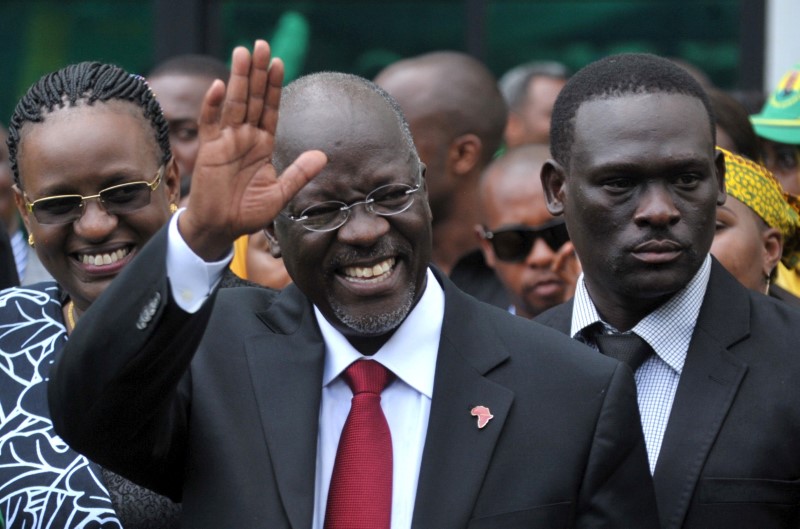By Fumbuka Ng'wanakilala
DAR ES SALAAM (Reuters) - Tanzania put more pressure on foreign mining companies on Tuesday by amending mining and tax laws to make it mandatory for the state to own at least 16 percent of mining projects, while also raising export royalties.
Parliament passed the bill unanimously, the state-run Tanzania Information Services said.
This followed two other laws passed on Monday giving the resource-rich East African nation the right to tear up and renegotiate contracts for natural resources like gas or minerals, and removing the right to international arbitration.
The bills were introduced on Thursday and rapidly passed, despite pleas for more time from an association representing mining companies.
"In any mining operations under a mining licence or a special mining licence, the government shall have not less than 16 (percent) non-dilutable free-carried interest shares in the capital of a mining company," the text of the new law says.
The government also left itself scope to further increase its stake in the companies.
"In addition to the free carried interest shares, the government shall be entitled to acquire, in total, up to 50 percent of the shares of the mining company commensurate with the total tax expenditures incurred by the government in favour of the mining company."
There was no further explanation from the government, but industry sources said they believed the bill meant the government might take further shares in companies that it accused of owing taxes, in lieu of the money owed.
Government officials were not available for comment.
President John Magufuli has accused large mining companies of evading taxes, charges they deny. At a public rally on Tuesday, he said Tanzania was fighting an economic war.
"We couldn't wait to pass the laws because of the large scale theft taking place in the mining sector," he said.
RISING ROYALTIES
The new law also raises royalties from gold, copper, silver and platinum exports to six percent from four percent. It increases the royalty on uranium exports from five percent to six percent.
The law also allows the government to reject a company's valuation if it believed the price was too low. The government would be entitled to buy the consignment of minerals at the price quoted.
"For the purposes of calculating the amount of royalties payable, the government shall be entitled to reject the valuation," the text of the new law said.
"Where the government rejects the valuation, it shall have the option to buy the minerals at the low value."
Tanzania's largest miner Acacia, majority owned by Barrick Gold (TO:ABX), said on Tuesday that notices of arbitration were served on behalf of companies that own its Bulyanhulu and Buzwagi mines, which have been hit by an export ban.

"The serving of the notices at this time is necessary to protect the Company," Acacia said.